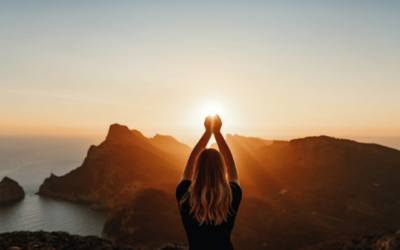
Introduction
As the Future Medicine Woman, a woman of deep wisdom and reverence for divine creation, I honor your soul journey and am happy to support you to grow and find true fulfillment in excellent health. This article invites awakened leaders to reflect on why caffeine – a stimulant beloved by modernity – can affect spiritual development and high vibrational living, as well as your physical health. There has never been a time when so many people have sought help to better manage stress and regulate the nervous system. It is important that we look at the cause of symptoms. And why it’s a lot about coffee, but not just coffee.
2. The ancient history of coffee does indeed have spiritual roots…
Long before coffee became a global luxury food, its history was characterized by rituals, war and resilience. Originally discovered in the ancient highlands of Ethiopia, coffee was once worshipped in Sufi monasteries to increase mental alertness during long night prayers. But throughout history – especially in times of war, famine or scarcity – people turned to the earth for alternatives: Roasted acorns, barley, chicory roots, dandelions or even fig seeds were brewed as sacred substitutes when real coffee was unattainable. These earthy, often bitter yet grounding brews allowed people to honor the cycles of life and traditions beyond caffeine, bringing them back to Mother Nature’s treasure chest. This heritage reminds us that the vitality of the soul never depended on stimulation, but on reverent presence and connection to natural rhythm and frequency.
I was able to experience coffee enjoyment in the sense of tradition and ritual in a very special way on my last study trip through Egypt. I had the rare opportunity to travel by boat across Lake Aswan to the Beshari, a Bedouin-like tribe who live in the desert and are famous for their coffee. From roasting the beans, to cooking with ginger, cardamom and pepper, to enjoying the triple-brewed coffee, I was able to experience and, of course, taste everything. It tasted delicious! But the Egyptians who live along the Nile river also have their coffee tradition of cooking over an open fire, as shown here in the photo with the social gathering of this men in the evening.

3. How Caffeine Acts in Brain & Body
The Subtle Disturbance
Caffeine, though socially accepted and widely consumed, introduces electrical charge and agitation into the subtle energy body. It may momentarily sharpen the mind – but at a cost to the deeper journey of stillness, resonance and soul connection. Here are some of the effects:
- Caffeine’s half‑life and subtle accumulation
Caffeine is absorbed within 45 minutes and may linger in the system for 10 hours or more, making even afternoon tea a potential disruptor of sleep and subtle energy renewal (Breville, scilime.com, Health). - Neurochemical effects: Caffeine blocks adenosine receptors – delaying drowsiness and increasing dopamine release. This gives alertness but interrupts natural rhythms of rest and restoration.
- Dependence and withdrawal: Regular intake – even as low as ~100 mg/day (about one cup) – can lead to physical dependence. With cessation, symptoms such as fatigue, irritability and depressed mood may appear within 12–24 hours and peak in two days, lasting nearly a week (Wikipedia).
- Sleep disruption and emotional distress: Even a single cup in the morning can reduce deep non‑REM sleep quality the next night. Chronic disruption may lead to heightened stress, mood imbalance, and diminished clarity of perception -key elements of spiritual experience.
- Cardiovascular and anxious over‑arousal: In sensitive individuals, moderate to high caffeine can raise blood pressure, induce jitteriness, heart palpitations, and anxiety symptoms – hindering inner stillness and centered equilibrium (Science Direct).
- Mixed benefits in mainstream medicine: Institutions such as Harvard and the New England Journal of Medicine acknowledge both potential benefits and harms. Moderate consumption (200–400 mg/day) may support alertness, reduced risk of stroke, type 2 diabetes, Parkinson’s and Alzheimer’s disease – but these benefits often derive from antioxidant properties rather than caffeine itself (Harvard Kennedy School).
- Latest large‑scale research: A 2025 Harvard study of over 47,000 women across 30 years found that moderate caffeinated coffee (≈315 mg/day, ~2.5 cups) corresponded to a 2–5 % higher probability of healthy ageing – preserving cognition and mental health into the seventies – but benefits plateaued and even reversed for sugary caffeinated drinks like cola (The Times).
4. Integrating Wisdom – Why Leaders May Choose to Abstain
| Consideration | Spiritual‑Awakening Impact | Medical & Energetic Effects |
| Quiet of mind | Deep meditation, intuitive clarity, and heart‑channel resonance require stability – not oscillation induced by stimulants. | Sleep disruption, reduced deep rest, emotional volatility. |
| Energetic purity | The awakened path seeks subtlety and resonance, not artificial uplift. | Caffeine interrupts natural oscillations of circadian rhythm and autonomic balance. |
| Psychic sensitivity | High vibrations flourish in clear energy bodies unfettered by chemical stimulation. | Anxiety, jitteriness and overstimulation obscure subtle inner sensing. |
| Dependence | Spiritual sovereignty demands freedom from cravings and addictions. | Withdrawal cycles erode sovereignty and ground clarity. |
5. Why caffeine may work against the awakened brain and spiritual living:
Dr. Lisa Miller’s paradigm: In The Awakened Brain (Columbia University, Teachers College)
Miller reveals that humans are born with a neural architecture for spirituality. Spiritual awareness enhances resilience, creativity, ethical clarity and healing from trauma or depression. Spiritual awakening strengthens brain networks that support love, connection and purpose (lisamillerphd.com).
Spiritual clarity vs. energetic agitation
Any caffeine – tea or coffee – can fragment resonance by:
- Interrupting deep sleep, vital for soul‑body restoration
- Inducing restless alertness that conflicts with meditative stillness
- Creating psychic noise, distracting from intuition and inner knowing
6. Beyond Coffee — Why Tea Also Matters in the Caffeine Conversation
As a keeper of ancient medicine and present wisdom, I honour the vibrational subtlety within each sip and I love the ceremony around it. Though often praised, tea – from black to green – carries caffeine energy that may also disturb the stillness essential for spiritual evolution.
1. Tea includes L‑theanine – alerter yet calmer
Green and black teas contain L‑theanine, an amino acid that tempers caffeine’s jolt. It creates a smoother alertness – but still stimulates the nervous system and interrupts profound meditation or energetic stillness (Vogue).
2. Even low doses influence neurochemistry
While moderate intake may feel gentle, the adenosine blocking and dopamine release create subtle dependency cycles. Over time – even at lower doses – the pattern can erode nervous system clarity and sensitivity to stillness.
🍵 Caffeine Equivalents in Common Beverages
| Beverage | Typical Caffeine (mg per ~240 ml cup) |
| Brewed Coffee | 95–165 |
| Espresso (1 oz shot) | ~63 |
| Black Tea | 40–70 |
| Green Tea | 20–45 |
| White Tea | 15–30 |
| Matcha (powdered) | 35–80 (per ~1 g serving) |
| Herbal Tea | ~0 (naturally caffeine-free) |
These doses are significantly lower than a standard cup of brewed coffee (95–165 mg), yet they still influence the central nervous system, disrupt deep rest rhythms and subtly agitate the energetics of presence. As you might try everything to calm the mind and get better sleep, this is important to take into account when establishing new routines for healthier lifestyle.
7. Gentle Guidance – Cultivating High Vibrational Alternatives
- Replace caffeine with warm water, herbal infusions (e.g. tulsi, chamomile, ginger, mint) or alchemical adaptogenic teas.
- Support natural energy cycles through mindful breathework, movement, yoga, sunlight and meditative rest.
- For getting rid of brain fog, better clarity and focus have powerful activation of your life-force, with Kundalini Yoga exercises. There is huge effect already with 10-15 min. daily practise.
- Honor the body’s innate rhythms – trusting that spiritual vitality flows through restful presence, not artificial stimulation. Check yourself before you tech yourself!
- If you’ve checked yourself, you can go further and also use a modern Brain Wellness & Relaxation Device like neuroVIZR, for more information and website, click here
✨ Integration for Spiritual Leaders
- Propose herbal infusions or adaptogenic, caffeine-free blends as sacred alternatives that honour the soul’s gentle unfolding and provide additional support in many areas of health.
- Speak not only of coffee but include tea when guiding others on vibrational sovereignty.
- Encourage awareness of total caffeine intake, including hidden tea doses.
8. Conclusion: An Invitation to Conscious Choice
In the light of medical science and the wisdom of spiritual neuroscience, choosing to release caffeine becomes a sacred act of personal sovereignty and soul‑respect. As Lisa Miller’s work reminds us, awakening is not just belief – it is a lived alignment with our divinely endowed brain, heart and body.
As a Future Medicine Woman and awakened Starseed I’m the human example of divine presence and highest level soul expression, living a multi-dimensional life already.
May your path be luminous, your mind clear, your heart full of love and your soul ever awake.
9. Sources & Citations
- Harvard / NEJM reviews on caffeine’s risks and benefits (nejm.org)
- Systematic reviews on sleep disruption, cardiovascular and psychiatric effects
- Research into caffeine’s acute cognitive effects and dependency cycles
- Lisa Miller’s research on spirituality, resilience, and brain health (lisamillerphd.com)



